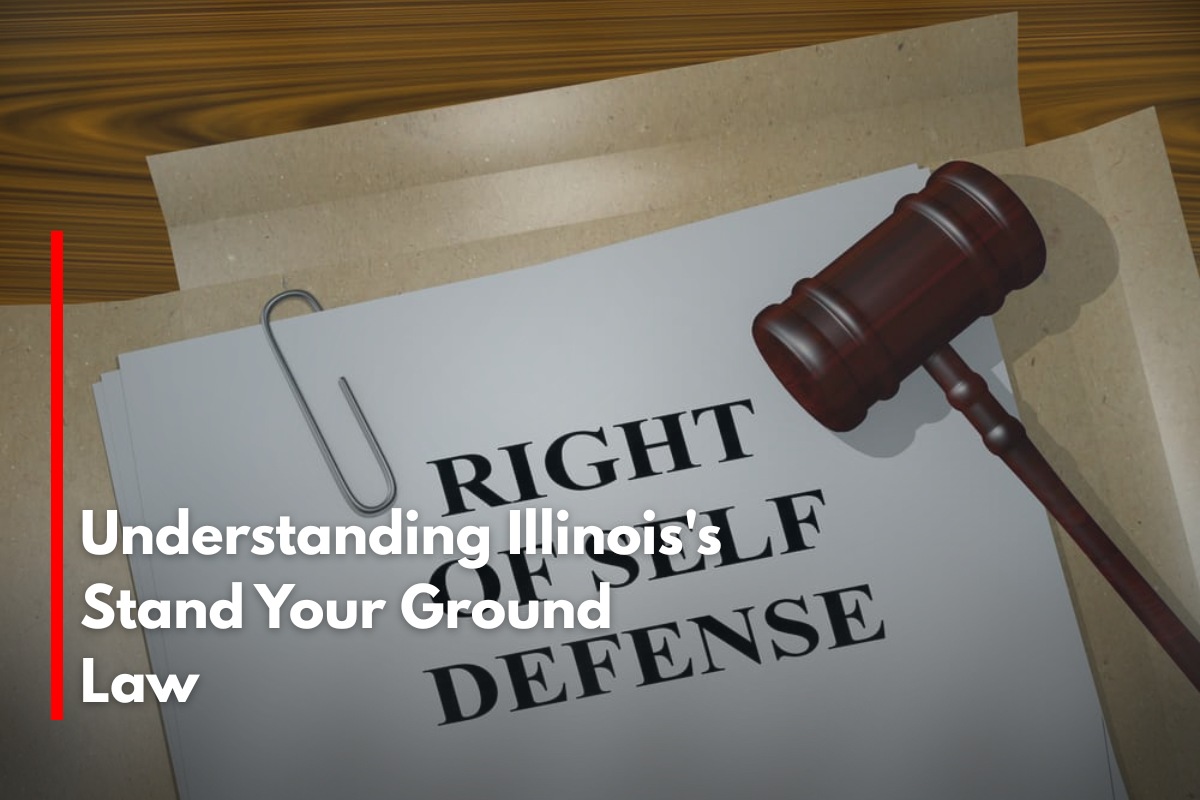Illinois’s approach to self-defense, often discussed in the context of “Stand Your Ground” laws, is distinct from many other states. While the phrase “Stand Your Ground” has become a shorthand for laws that remove the duty to retreat before using force in self-defense, Illinois’s statutes and court interpretations offer a nuanced perspective.
What Is a Stand Your Ground Law?
Stand Your Ground laws generally allow individuals to use force, including deadly force, in self-defense without any obligation to retreat, provided they are in a place where they have a legal right to be. These laws are designed to protect individuals who defend themselves from criminal or civil liability, even if they could have safely avoided the confrontation by leaving the area.
Illinois’s Approach: No Explicit Stand Your Ground Statute
Illinois does not have a statutory Stand Your Ground law. Instead, its self-defense laws are rooted in the principles of reasonableness, proportionality, and the “castle doctrine.” Here’s how it works:
Duty to Retreat in Public: In public spaces, Illinois generally imposes a duty to retreat if it is safe to do so. The use of force is only justified when there is no safe avenue of escape. This means that, unlike in true Stand Your Ground states, you must attempt to avoid the confrontation if possible before resorting to force.
Castle Doctrine at Home: Illinois recognizes the castle doctrine, which allows individuals to use force, including deadly force, to defend themselves against an intruder in their own home. In this context, there is no duty to retreat.
Key Elements of Self-Defense in Illinois
Reasonable Belief: You must reasonably believe that force is necessary to prevent imminent harm. This belief is judged by what an average person would consider reasonable in the same situation.
Imminent Threat: The threat must be immediate. You cannot use force against a perceived threat that may occur in the future.
Proportionality: The force used must be proportional to the threat. Deadly force is only justified if you believe it is necessary to prevent imminent death, great bodily harm, or the commission of a forcible felony (such as robbery, burglary, or sexual assault).
No Blanket Immunity: Even in cases of self-defense, the use of force will be scrutinized by law enforcement and the courts to ensure it was justified under the circumstances.
Exceptions and Legal Nuances
Public vs. Private Property: The duty to retreat applies in public but not in your home (castle doctrine). There is no duty to retreat from an intruder in your own dwelling.
Initial Aggressor: If you were the initial aggressor in the confrontation, you may have a duty to retreat and may not be able to claim self-defense.
Defense of Others: Illinois law allows you to use force to defend others if you reasonably believe it is necessary to prevent imminent unlawful force against them.
Recent Legal Developments
While Illinois does not have a Stand Your Ground statute, the state Supreme Court has held in some cases that there is no duty to retreat before using force if you are in a place you have a lawful right to be and face an imminent threat. However, this is interpreted narrowly and does not amount to a broad Stand Your Ground law as seen in other states.
Illinois’s self-defense laws prioritize the principles of reasonableness and proportionality, requiring individuals to retreat from danger in public spaces if it is safe to do so. Only in the home does the law remove the duty to retreat, under the castle doctrine.
Understanding these distinctions is crucial for anyone living in or visiting Illinois, as the state’s approach to self-defense is more restrictive than in many Stand Your Ground jurisdictions
Sources
[1] https://en.wikipedia.org/wiki/Stand-your-ground_law
[2] https://www.chicagocriminaldefenselawyer.net/chicago-criminal-lawyer/how-no-stand-your-ground-law-affects-self-defense-claims
[3] https://www.blattilaw.com/blog/illinois-self-defense-laws-may-be-different-than-you-think
[4] https://www.cheronislaw.com/blog/2024/05/navigating-self-defense-laws-in-illinois/
[5] https://www.geneognibeneassociates.com/criminal-law-basics/what-are-the-rules-on-self-defense-in-illinois/











